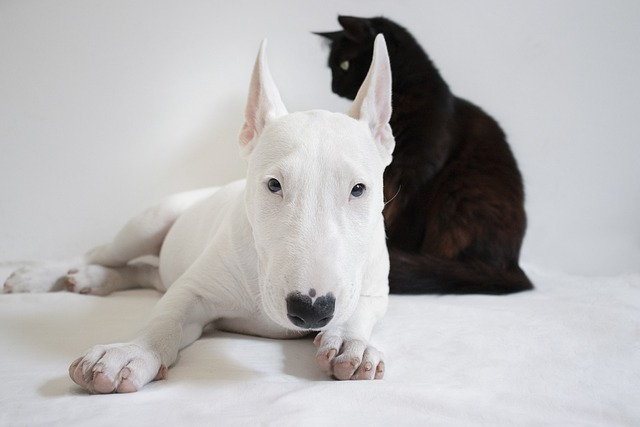
How to train your puppy to like grooming?
Grooming your puppy should be a bonding experience, not a wrestling match. But those tiny paws batting at the brush and squirms during nail trims can make it seem impossible.
You’re in the middle of an important video call, and your dog won’t stop barking. Or maybe it’s late at night, and your neighbor’s dog’s incessant barking is keeping you up. If you’ve ever found yourself desperately asking, “What sound silences a dog from barking?” you’re not alone. Barking is a natural form of communication for dogs, but excessive barking can be a nuisance, and understanding how to address it is key for new dog owners in the US.
Dogs bark for various reasons—they might be alerting you to a perceived threat, seeking attention, expressing excitement, or feeling anxious. Their sensitive ears pick up a wide range of frequencies, and certain sounds can capture their attention and disrupt their barking behavior. From a behavioral perspective, dogs are creatures of habit and respond to stimuli that break their current pattern. For example, a Chihuahua might bark at every passerby on the street, but a sudden, unexpected sound could momentarily halt the barking as the dog tries to figure out what’s happening.
One effective sound to silence a barking dog is a sharp, short whistle. The sudden, high - pitched noise can startle the dog and redirect their focus. Another option is a firm, clear “no” spoken in a deep, authoritative voice. This works because it interrupts the dog’s barking rhythm and signals that the behavior isn’t acceptable. Some owners also use ultrasonic devices that emit high - frequency sounds inaudible to humans but uncomfortable for dogs. However, it’s important to use these devices sparingly and follow the manufacturer’s instructions, as overuse can cause distress.

To use these sounds effectively, timing is crucial. As soon as your dog starts barking, make the sound. If you’re using a whistle, a single sharp blow is usually enough. If you’re saying “no,” say it firmly but calmly, without yelling. Immediately after the dog stops barking, even if it’s just for a second, praise them with a cheerful “good dog” and offer a small treat. This positive reinforcement helps the dog associate being quiet with getting a reward. Over time, they’ll start to understand that barking excessively isn’t the way to get what they want.
In the context of responsible pet ownership, it’s important to remember that excessive barking can be a violation of local noise ordinances in many US areas. Regular veterinary check - ups, required by law in most states to keep your dog’s vaccinations up - to - date, can also help rule out any medical issues that might be causing the excessive barking, like pain or anxiety. If you live in an apartment, be mindful of your neighbors and take steps to address your dog’s barking promptly. When walking your dog in the community, keep them on a leash to prevent them from barking at other people or animals, and always clean up after them as local regulations demand.
It’s essential to avoid using physical punishment or harsh yelling to stop a dog from barking. This not only goes against the animal welfare values widely embraced in the US but can also increase the dog’s anxiety and make the barking problem worse. Instead, focus on positive, consistent training methods to help your dog become a well - behaved, quieter companion.

Grooming your puppy should be a bonding experience, not a wrestling match. But those tiny paws batting at the brush and squirms during nail trims can make it seem impossible.

Bringing a new puppy home is a whirlwind of joy, but those unexpected puddles on the rug can quickly turn excitement into frustration.

Discover why calming sounds, not harsh noises, are the key to reducing dog barking—backed by science and real stories of stress-free pups.

Watching your dogs snarl and snap at each other isn’t just stressful—it can quickly turn dangerous. Aggression between dogs under the same roof can stem from territory disputes, resource guarding, or even underlying anxiety.

That heart-jolting moment: the doorbell rings, and your dog transforms into a fur-covered alarm system. Whether you’re in a Brooklyn walk-up or a suburban split-level

You’re in the middle of an important video call, and your dog won’t stop barking. Or maybe it’s late at night, and your neighbor’s dog’s incessant barking is keeping you up.